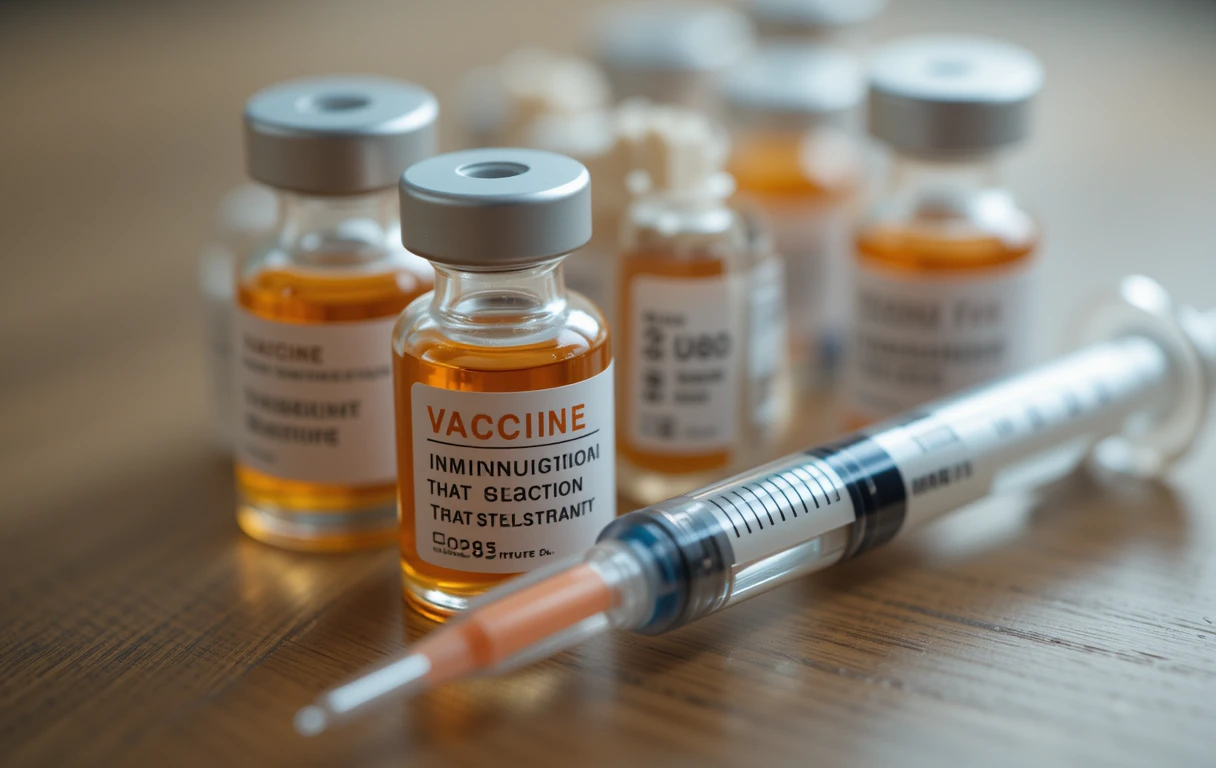Vaccines have been one of humanity’s most incredible innovations, transforming the way we fight diseases and ensuring a healthier future for millions. The journey of vaccines is one of resilience, discovery, and life-saving breakthroughs. Their ability to eradicate deadly diseases, prevent global pandemics, and improve the quality of life worldwide cannot be overstated. From smallpox to COVID-19, vaccines have not only saved lives but have also shaped the course of history. Let’s take a deeper dive into how vaccines have truly changed the world and their profound global health impact.
How Vaccines Revolutionized Global Health
Vaccines are not just scientific marvels; they represent hope and resilience in the face of deadly diseases. Historically, diseases like smallpox, polio, and measles claimed millions of lives annually. Communities were devastated, economies crippled, and life expectancy significantly reduced. However, the advent of vaccines brought about a turning point, ushering in an era where diseases could be controlled, if not completely eradicated.
Smallpox, for instance, was one of the deadliest diseases in human history. Its eradication in 1980, thanks to a global vaccination campaign, was a monumental milestone in public health. Similarly, the polio vaccine significantly reduced cases worldwide, with the disease now on the verge of eradication. Vaccines didn’t just stop diseases; they restored hope, enabled economic stability, and improved global collaboration.
The History of Vaccines: A Story of Determination
The history of vaccines dates back centuries, starting with Edward Jenner’s groundbreaking smallpox vaccine in 1796. Jenner’s work paved the way for modern immunology, proving that exposure to a milder version of a virus could protect against severe disease. This discovery was revolutionary and set the stage for the development of numerous vaccines.
As time passed, science and technology advanced, leading to the development of vaccines for diseases like tuberculosis, tetanus, and yellow fever. The 20th century marked a golden age of vaccines, with researchers working tirelessly to tackle diseases that had plagued humanity for centuries. Each vaccine’s journey is a testament to human ingenuity, perseverance, and the relentless pursuit of a healthier world.
Vaccines That Changed the World
Here’s a closer look at some of the most transformative vaccines in history:
Smallpox Vaccine
Smallpox was once one of the deadliest diseases known to humanity, with a mortality rate of 30%. The smallpox vaccine, introduced by Edward Jenner, was the first vaccine ever developed. Its global immunization campaign led to the eradication of smallpox in 1980, a feat that remains one of the greatest achievements in public health.
Polio Vaccine
Polio was a crippling disease that paralyzed thousands of children each year. The introduction of the inactivated polio vaccine (IPV) by Jonas Salk in 1955, followed by Albert Sabin’s oral polio vaccine (OPV), was a game-changer. Global vaccination efforts have brought us closer than ever to eradicating polio, with cases reduced by 99%.
Measles Vaccine
Measles, a highly contagious disease, once killed millions annually. The development of the measles vaccine in 1963 drastically reduced mortality rates. Vaccination campaigns have saved countless lives, and today, measles is preventable through routine immunizations.
Diphtheria, Tetanus, and Pertussis (DTP) Vaccine
The DTP vaccine, a combination shot, protects against three deadly diseases: diphtheria, tetanus, and pertussis (whooping cough). Its introduction has significantly reduced infant mortality rates and continues to play a crucial role in global immunization programs.
COVID-19 Vaccines
The COVID-19 pandemic showcased the power of global collaboration in vaccine development. Within months, researchers developed mRNA vaccines, a groundbreaking technology that saved millions of lives and provided a pathway to pandemic recovery. These vaccines have set the stage for future innovations in immunology.
The Global Health Impact of Vaccines
Vaccines have far-reaching impacts that extend beyond just disease prevention. Their influence can be seen in:
Disease Eradication
Vaccines have made the eradication of diseases like smallpox possible. Polio is next on the horizon, with ongoing efforts to eliminate it completely.
Improved Life Expectancy
By preventing diseases that once claimed millions of lives, vaccines have contributed to increased life expectancy worldwide. For example, child mortality rates have plummeted due to immunization campaigns.
Economic Stability
Vaccines reduce healthcare costs by preventing diseases and their complications. Healthy populations contribute to stable economies, as fewer resources are spent on treating preventable illnesses.
Global Collaboration
Vaccines have fostered unprecedented levels of global cooperation. From the World Health Organization (WHO) to non-governmental organizations, the fight against diseases has brought nations together.
Challenges in Global Vaccination
While the impact of vaccines is undeniable, achieving global vaccination coverage is not without challenges. Vaccine hesitancy, misinformation, and logistical barriers in low-income countries remain significant hurdles. Additionally, ensuring equitable distribution of vaccines, particularly during pandemics, is a pressing issue.
Global health organizations are working to address these challenges through awareness campaigns, technological advancements, and collaborative efforts. It’s a reminder that while vaccines are powerful tools, their success depends on collective action.
The Future of Vaccines: What Lies Ahead
The future of vaccines is bright, with advancements in technology promising even more effective solutions. mRNA technology, which gained prominence during the COVID-19 pandemic, holds the potential for rapid vaccine development against emerging diseases. Scientists are also exploring universal vaccines, such as a universal flu vaccine that could protect against multiple strains.
Moreover, innovations like needle-free vaccines and edible vaccines aim to make immunization more accessible, particularly in remote areas. These developments signify that the journey of vaccines is far from over; in fact, it’s only just beginning.
Vaccines That Changed the World: Global Health Impact
When we reflect on the history of vaccines, it’s clear that they’ve done more than just save lives—they’ve shaped our world. By eradicating diseases, improving global health, and fostering international collaboration, vaccines have paved the way for a brighter, healthier future. As we continue to innovate and overcome challenges, vaccines will remain a cornerstone of global health progress, offering hope for generations to come.




